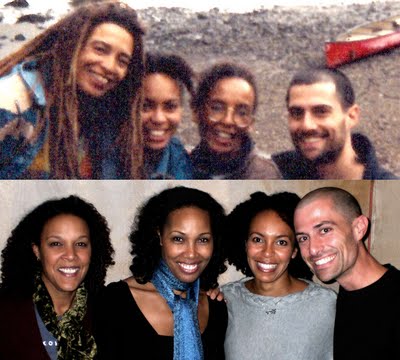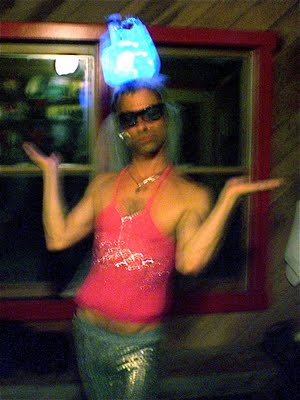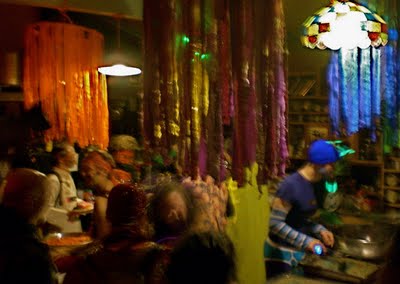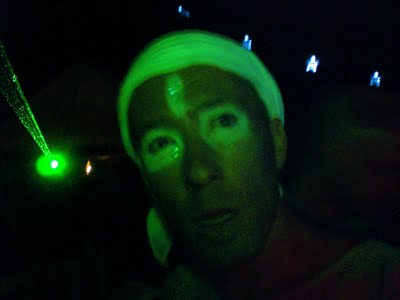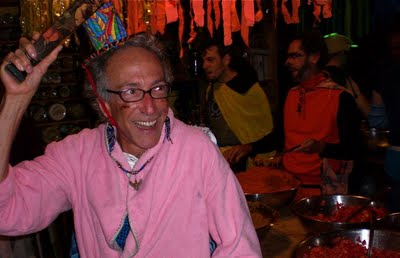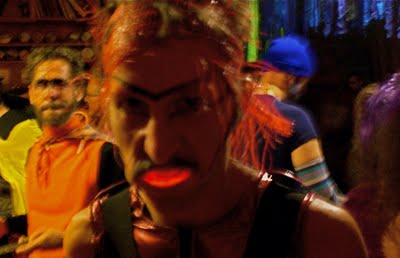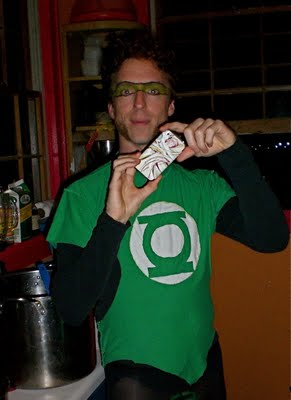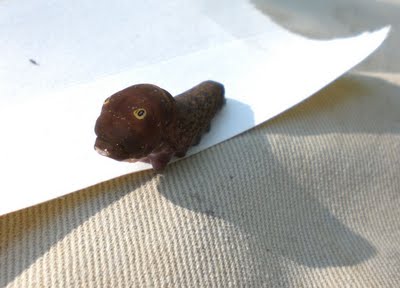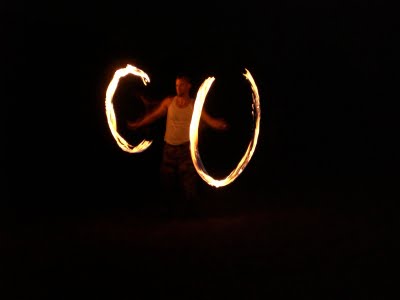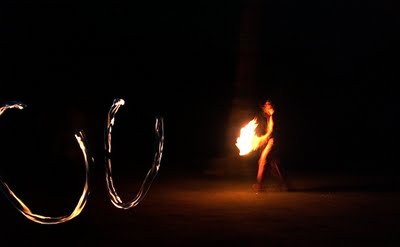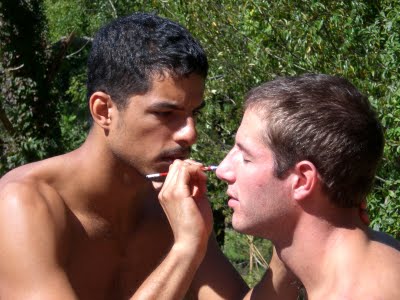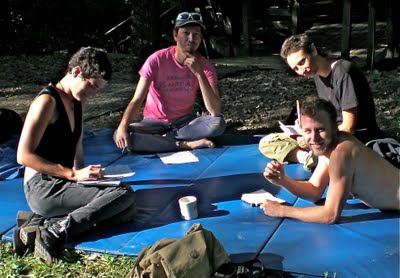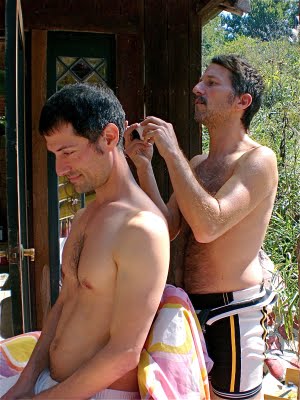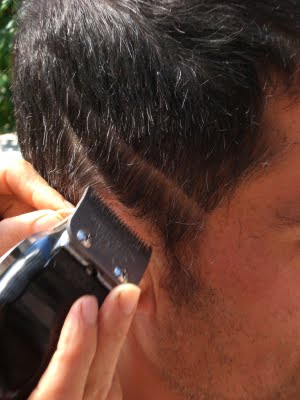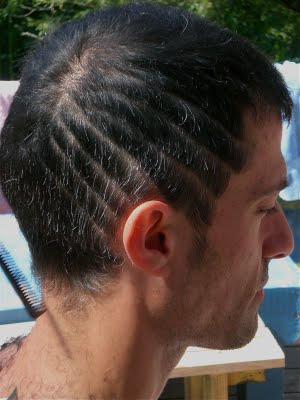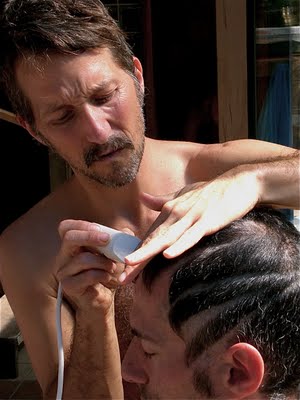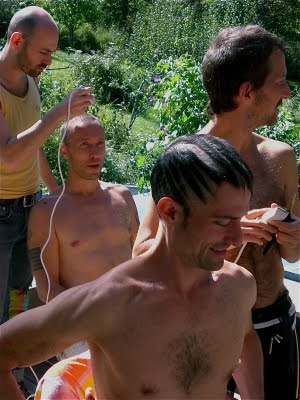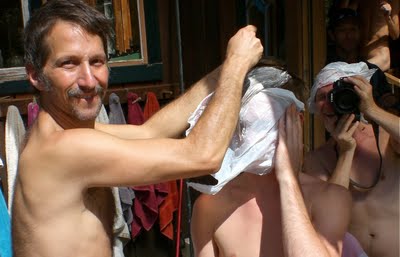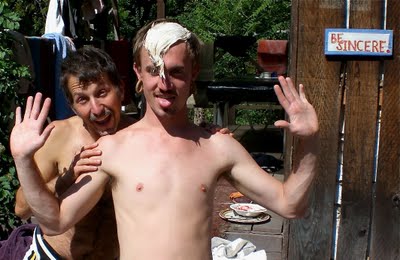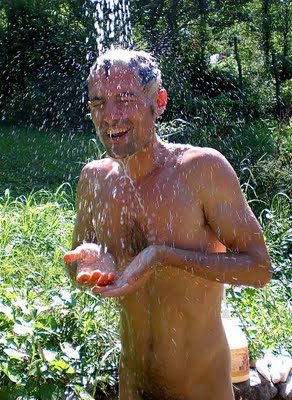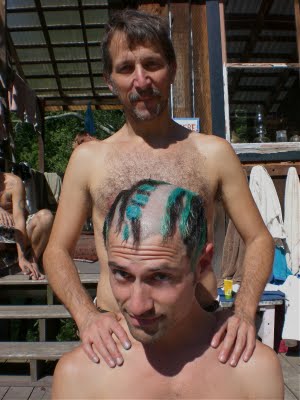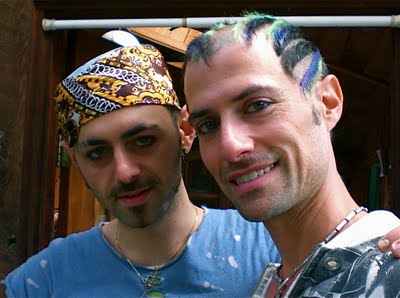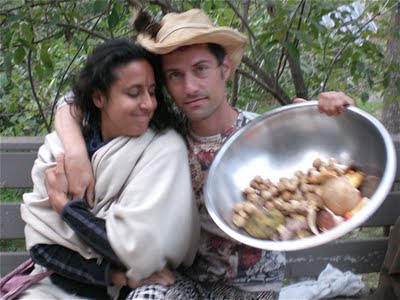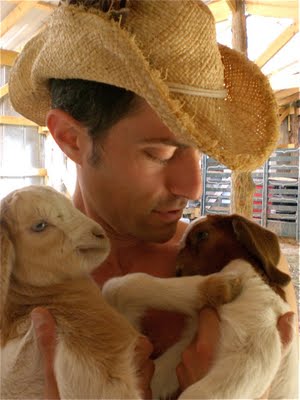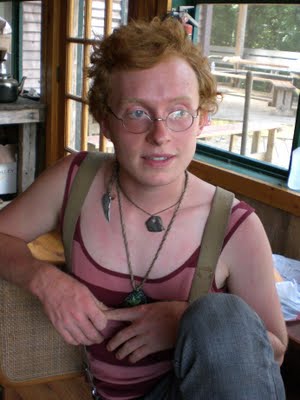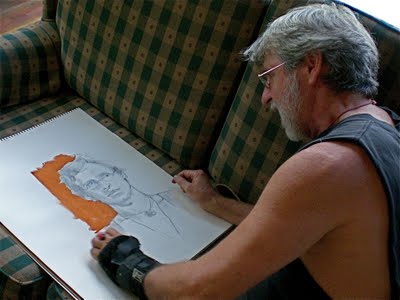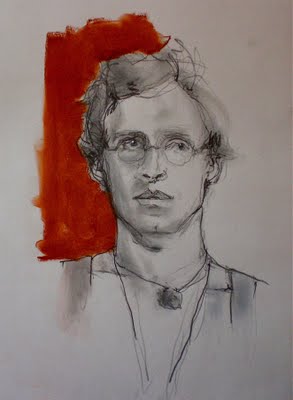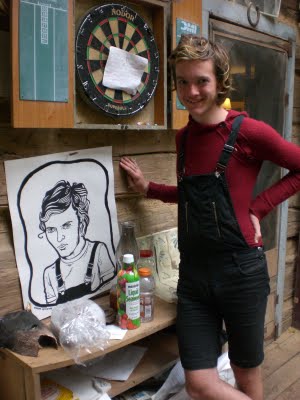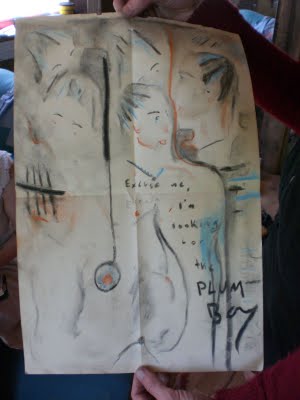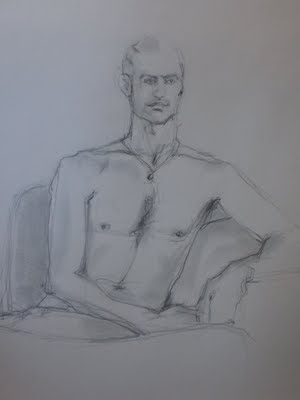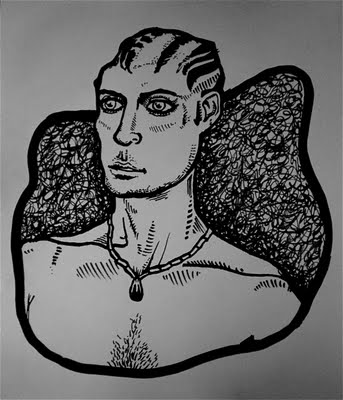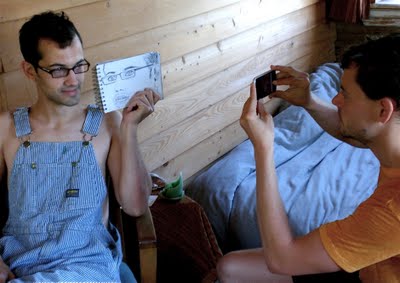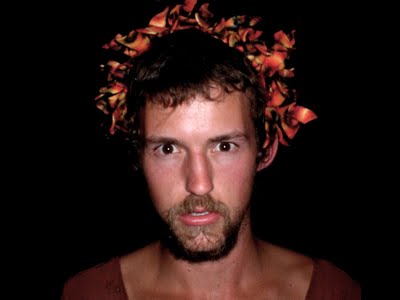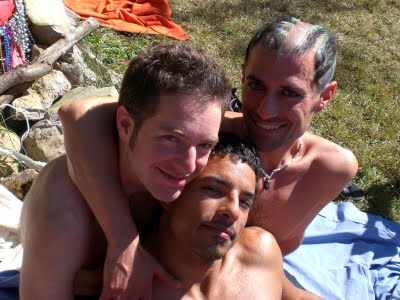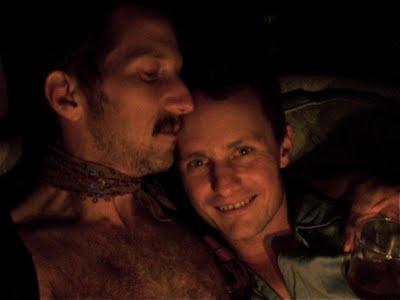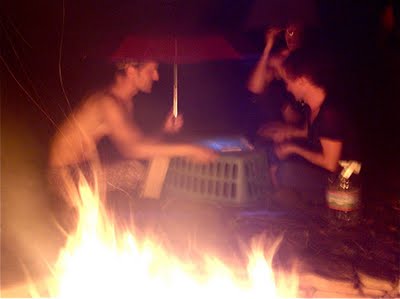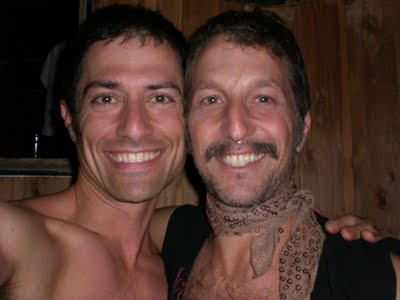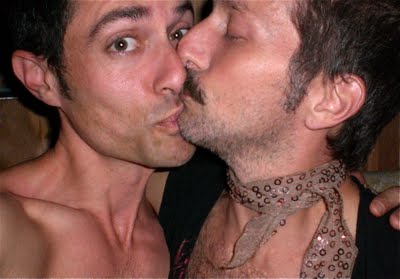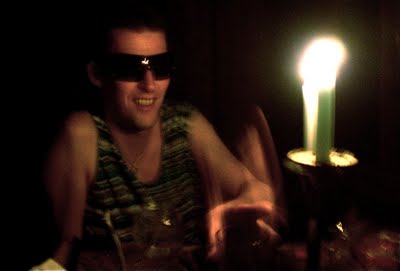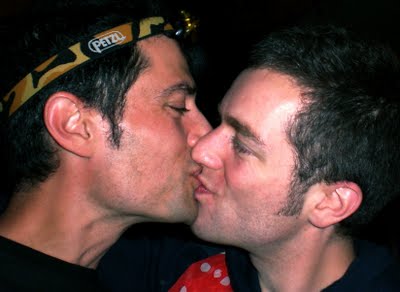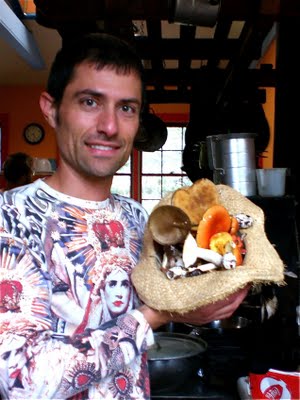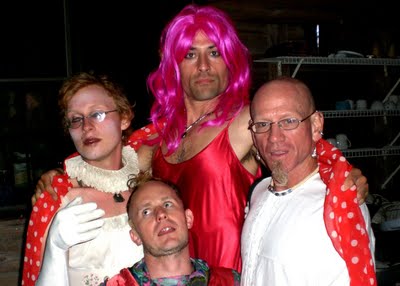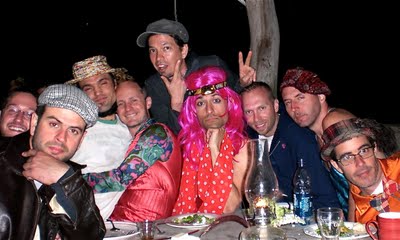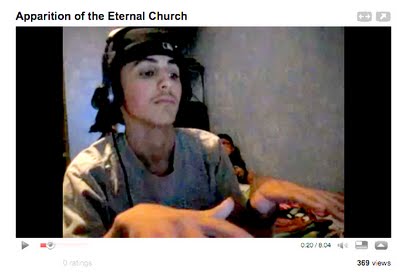Colman’s show was a knock-out. The frame for the story is his discovering, in the basement of the recently sold family house, crates of old soul records destined for landfill. For 85 minutes he thumbs through the crates, spins records, sings and dances along, and sort of hypnotizes you into unawareness that you’re hearing a coming out narrative and family drama. Hearing the coming out story sound fresh in 2009 is one of the most astonishing theatrical achievements I’ve ever been privileged to witness; coupled with the serial and compounding pleasures of experiencing Colman Domingo alone onstage for 85 minutes, it amounted to a perfect night in the theater.
At curtain, Colman got an instant standing-O and was besieged by admirers, and a bunch of us repaired to an Irish bar down the street for sidecars and the kitchen’s last serving of hot wings. The party ended up me, Colman and Roslyn Ruff – the two of them are coming to Berkeley Rep. in the new year for Athol Fugard's Coming Home, which they premiered at the Long Wharf Theatre. Colman and I went over how we know one another: I thought it was through Eisa Davis and their Berkeley Rep creation of Passing Strange, but in fact we go further back than that – we were dancing together at The Box on Divisadero back in the late 80s, a memory that was retrieved when I explained how I first put Eisa together with her Aunt Angela the night we were all at Queen Latifah’s New Year’s Eve concert there in 1989.
Speaking of Angela Eisa Davis and Angela Yvonne Davis, Colman’s show was only one of the autobiographical plays by Passing Strange alumni that were produced in New York during my two weeks there. At the Hip-Hop Theater Festival, Eisa’s play Angela’s Mixtape had a three-night run. Eisa, star of stage and screen (including Apparition of the Eternal Church) and a Pulitzer nominee for her play Bulrusher, happens also to be a beautiful singer and pianist, dancer and rapper, and tells the story of her radical East Bay upbringing, and the rich and burdensome legacy of her name, using all those talents, often two or more simultaneously. The show is a whirlwind of song and dance and, like Colman’s, conveys an affecting family drama almost slyly – while Eisa lulls you into theatrical dazzlement, the pathos sneaks up on you.
After the show, I took a few pictures of the cast and posed for this one recreating a picture of me with the Davis family from 1994, when we went canoeing up Big River in Mendocino. I swear I didn't shave my head for the second photo.

